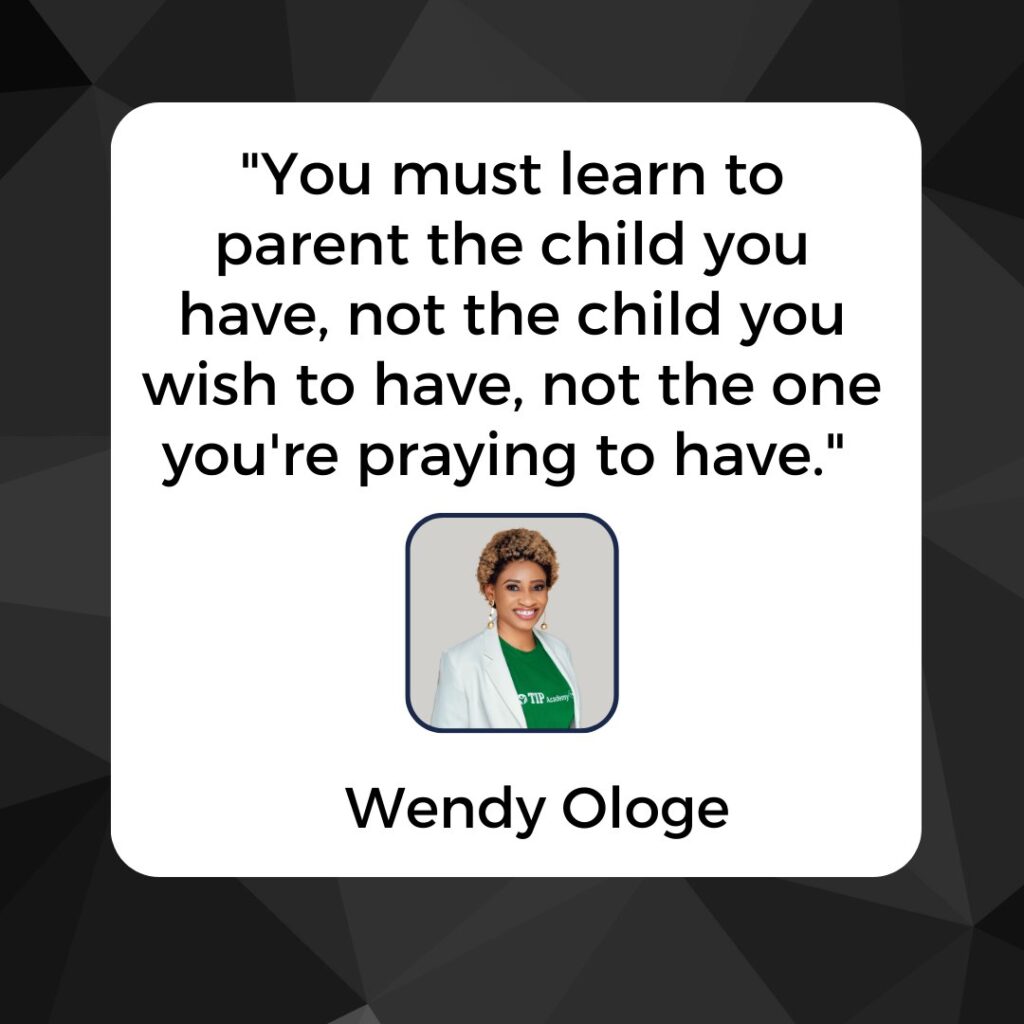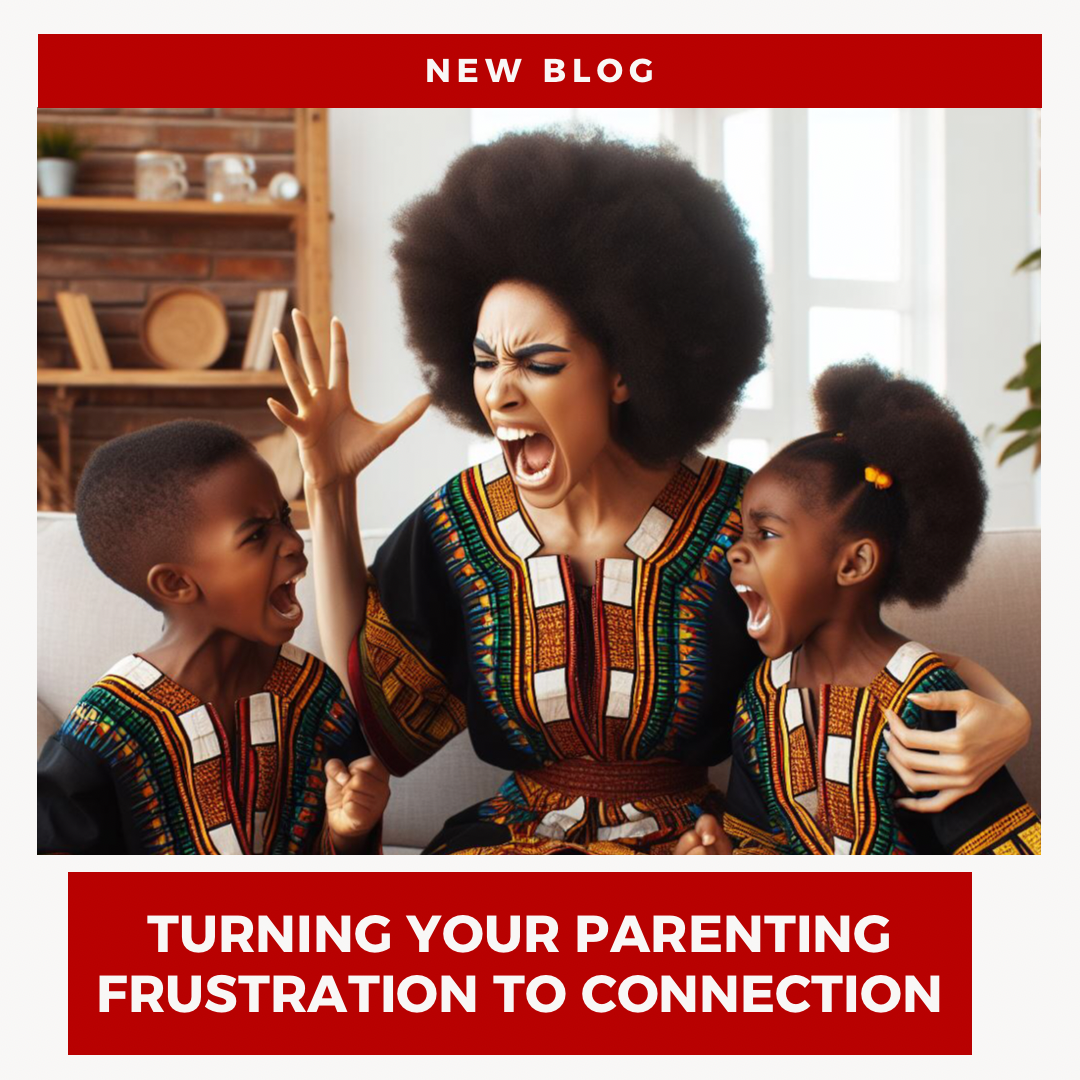“I am frustrated with Parenting, I don’t know if I am the only one but my children make this journey so difficult, I think my children are just too strong- willed and stubborn unlike your own children .
This is a complaint I get very often. While one parent thinks theirs is worse, what they don’t know is that every parent gets frustrated on their journey when the going gets tough, but what differs is what they are able to do with that frustration. Turning your parenting frustrations into connection moment is one of the supper powers of parenting and I have taught this over the years to help thousands of parents.
Have you ever thought that your worse moments can become the best moments for a while? Yes you heard right and this blog will be a light bulb moment for you.

In dealing with these frustrations, I have broken them down into :
6 P’s of Parenting Frustration and How to Turn Them to Connection
- PRESSURE : Parenting, in these times is riddled with the weight of expectations. The pressure to excel in the role of parenting can be overwhelming. From societal standards to family expectations, the burden of raising children according to perceived norms creates pressure for tons of parents. These pressure points include ;
a. Pressure of Performance: The expectation to perform well and the constant comparison of our parenting with others, and even worse the invisible competition we create in our minds can contribute to this pressure .
b. Parenting Superiority: In a world where information is abundant, parents find themselves not only more educated but also more competitive. The pressure of proving that “my parenting is better than yours” is becoming crazy.
c. The Pressure of Fun: Surprisingly, there is a pressure associated with the concept of fun in parenting. I talked about this in the inner circle recently. From meticulously planned birthday celebrations to the pressure of living by societal expectations. The pressure of fun is real for families etc Other pressures include the pressure of educational expectations and fashion and appearance.

- Perception: Perception to me, is at the core of parenting challenges. Life is shaped by how we perceive things, and when it comes to parenting, misunderstanding a child’s behavior can lead to frustration. It’s crucial to recognize that misinterpreting your child’s needs or not understanding their developmental stage can result in persistent frustration.
Parenting pressures like we mentioned earlier also adds to the mix. Whether it’s societal expectations or the fear of judgment, these pressures can cloud our perception. Instead of succumbing to societal pressure, it’s essential to focus on understanding and guiding Your child through their growth.
- Power Struggles: Parenting comes with its fair share of frustrations, and one significant hurdle that many parents face is the power struggles that can arise between them and their children. These conflicts often stem from past struggles, a lack of connection, and misunderstandings about children’s developmental stages.
Power struggles with your child, especially during crucial developmental stages, can be a significant source of frustration. I believe that fostering a strong connection with your child prevents these struggles. Connection is the key to navigating past challenges and creating a harmonious relationship.

A misbehaving child seeks attention, even if negative. Understanding this helps in managing behaviors effectively. It’s crucial not to fall into the trap of prioritizing the wrong aspects—be it societal expectations or comparisons with others. Each parent’s journey is unique, and prioritizing your season of life is essential.
4. Prioritization challenges are a real struggle for parents. Managing and figuring out what truly matters often feels like an uphill battle. The constant pressure to keep up with others, especially in this competitive world, makes it difficult to prioritize our own needs and navigate through the different seasons of life.

In the Inner Circle, we don’t advocate for the concept of balance because, truth be told, there’s no such thing. The idea of achieving a perfect work-life balance seems unattainable. Instead, what we focus on is essentialism. Time, a factor often touted as manageable, is actually something we can’t control. We don’t teach time management; we teach essentialism. It’s about looking at time, prioritizing what truly matters, and embracing what is essential in that moment.
I’ve realized that trying to balance every aspect of life only leads to frustration. In my own journey, there have been moments when I felt overshadowed by high-achieving peers, questioning where I stand in my own season of life. Prioritizing my own season is the key to avoiding this frustration.
Life, as we know it, isn’t about finding the perfect balance, but rather about understanding what is essential in each season. By embracing essentialism over balance, I’ve found a more realistic and satisfying approach to managing life’s demands.
5. Perfection: Perfection, oh, the pressure it brings. Who told us that we must strive for perfection or raise perfect children? It’s a misleading notion. The idea that everything must fit into a perfect mold only sets us up for a life devoid of growth and improvement. If everything were perfect, what would be left to work on or strive towards?
In our current Inner Circle book of the month , ” Connect to Correct,” we explore the concept of perfection. I’ve often questioned why we, as parents, feel the need for our children to wake up one day and become executive bankers or fit into some predetermined perfect image. The truth is, if our children were already perfect, they wouldn’t need us. Perfection can actually hinder the growth and connection between parents and children.

The pursuit of perfection can also lead to power struggles, especially when we impose unrealistic expectations on our children. Wanting a two-year-old to be prim and proper when they come home? It’s unrealistic and sets the stage for frustration. Personally, I’ve learned that when children come to my house and don’t jump around, it gives me a negative vibe. Perfection is not only unattainable but can also create an environment that stifles the true essence of childhood.
6. Poor Emotions Management The final piece of the puzzle – poor emotions management. Discipline, to me, isn’t about creating drama that leads to trauma for my child. The root of frustration often lies in the inability to manage emotions effectively. It’s a skill not many were taught, and the result is often becoming a drama king or queen, causing unnecessary trauma.
I’ve witnessed instances where parents lose control over their emotions, creating a storm of pressure and drama. I recall a situation with our daughter a couple of years ago. The school contacted us about an incident, and instead of reacting with heightened emotions, my husband and I remained calm. We didn’t succumb to the expectation of creating a dramatic scene. We knew better.
Our daughter explained her side, and we calmly addressed the issue. The teachers, expecting a dramatic response, were surprised. It made me realize the power of not creating drama that leads to trauma for our children. We aren’t in the business of proving ourselves as ‘perfect’ parents; we’re focused on guiding our children through challenges.
It’s crucial to resist the temptation to create unnecessary scenes just for the sake of appearances. Some parents go to school, fueled by the need to show they are perfect. This not only misses the point but also traumatizes the child. Instead, I advocate for understanding and managing our emotions.
We shouldn’t crave drama or noise as a sign of effective parenting. It’s about knowing when to step in and guide, rather than reacting impulsively. I’ve even written a book called “Raising the Independent Thinking Child” that delves into these aspects. The key is not creating drama; it’s about being a pillar of support and understanding for our children. Managing our emotions is at the heart of effective parenting, ensuring that we don’t inadvertently cause trauma in the process.
I Can Show You How to Manage Your Emotions
As you know, my course Becoming an Emotionally Intelligent Parent course is starting soon and as we were onboarding the new participants, this question came in response to the promotion of the course and I would like to address this here.

“Hi, I’m eager to join the course, but I have a question. I am a Chronic Yeller, infact , I can yell for Africa. I have read books on managing my emotions, but I still struggle at the slightest provocation. Do you think that this course can help me parent with calm?”
Without a doubt, my answer is a resounding yes!
Here’s the reality: Your journey towards managing emotions and parenting with calm begins with a commitment to working on yourself. It’s not just wishful thinking; it’s about taking charge and enrolling in this course.
For instance, we’ve witnessed incredible transformations, like a mother of triplets parenting with absolute peace and calm and former chronic yellers breaking free from the habit – all thanks to this course.
So, to address the question directly – yes, I believe the “Becoming an Emotionally Intelligent Parent Course” is tailor-made for any parent aspiring to approach parenting differently in 2024.

The goal is clear: to guide you on the path to work on your
emotions and use them positively in your journey as a parent. But it doesn’t stop there. You’ll gain skills, tools, and knowledge to replicate these results throughout the year.
If you’re considering signing up, act swiftly. Over 700 parents are on board already and the early bird registration ends on January 21st, so this is your only chance to secure the current price of N15,500/ $17. Delaying might mean missing out on this exclusive discount.
To enroll in the course, you can pay N15,500 ($17) to 0509494057 (GT Bank) and send proof of payment through WhatsApp chat to 09036633600. Alternatively, you can purchase online using this link: https://theintentionalparentacademy.selar.co/emotionalintelligence.
Don’t hesitate—jump onboard now! I hope to see you in class




